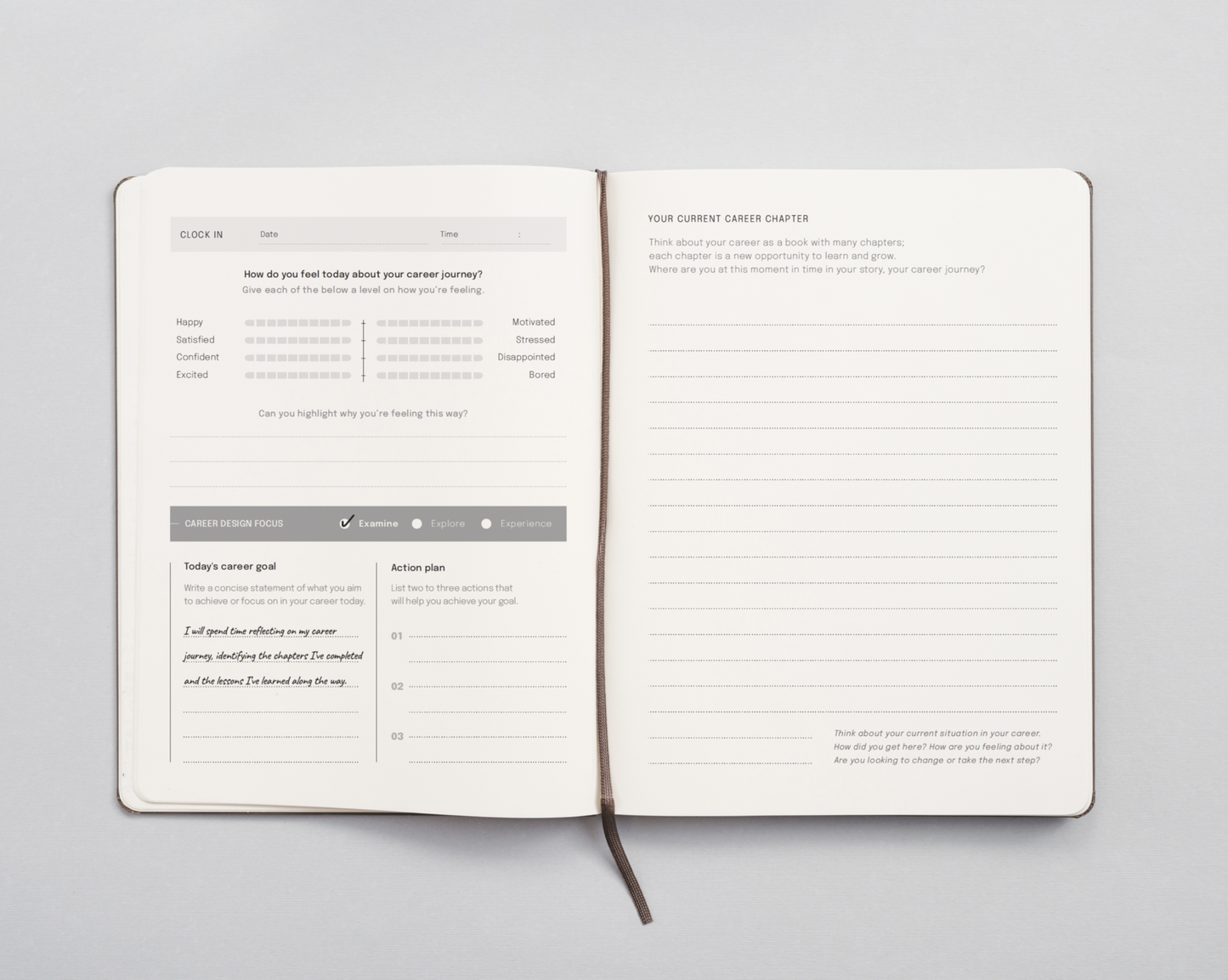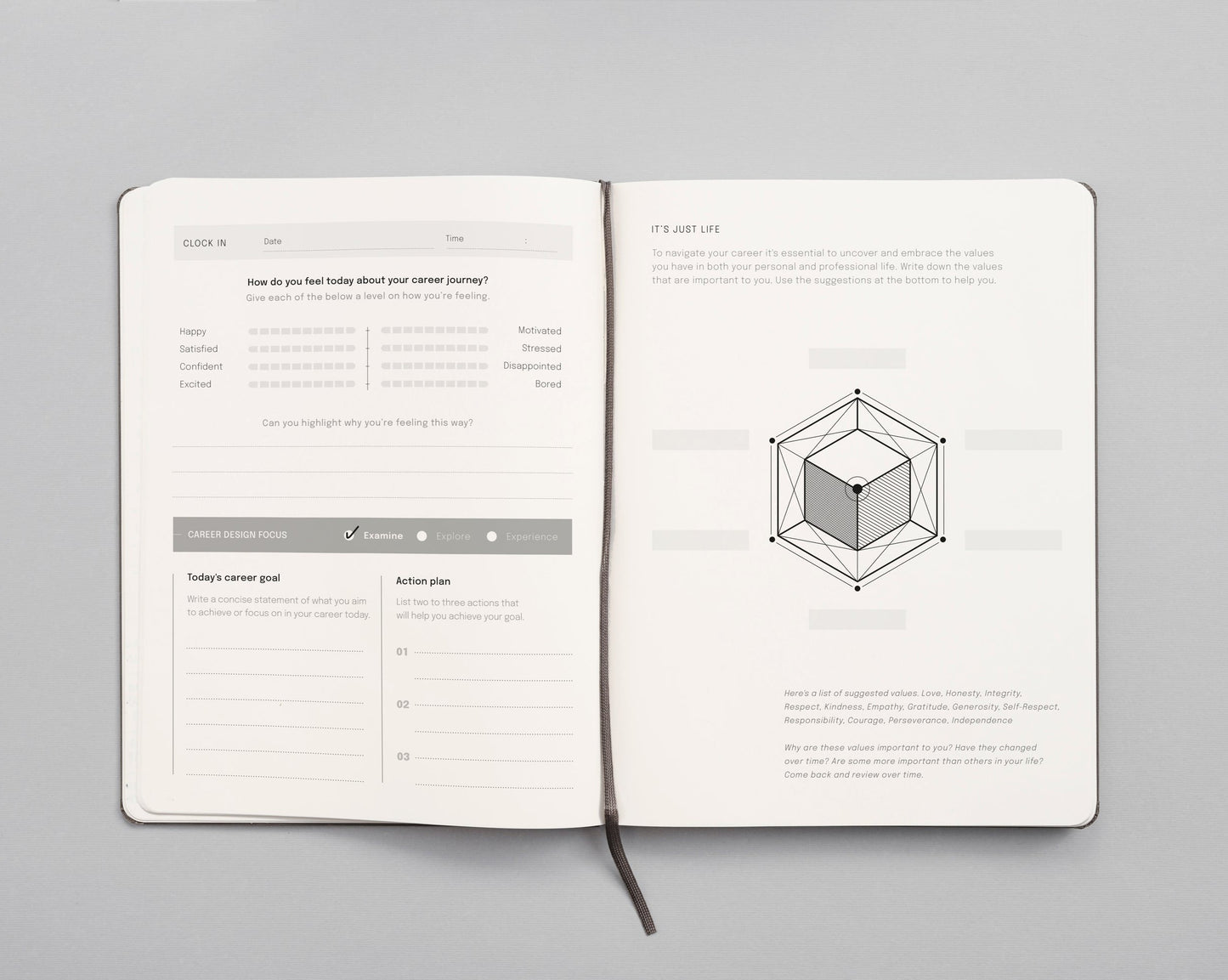Digital vs. Paper Journaling: The Case for Pen and Paper
In today's fast-paced digital world, everything seems to have a digital counterpart. From books to banking, it's easy to assume that going digital is always the better option. But when it comes to career planning, there's a strong case to be made for the old-fashioned paper journal.
The Allure of Digital
Digital journaling offers undeniable convenience. Apps and software provide endless customization options, easy search functionality, and cloud backup. It's tempting to think that the efficiency of typing and the ability to store vast amounts of information digitally could be a game-changer for career planning.
Digital journaling has many good points. However, it might not be the best way for everyone to think deeply about their career. Sometimes, you need to think hard about your career path. Writing things down by hand can help you do that better.
The Power of Pen and Paper
There's something undeniably tangible about putting pen to paper. Studies have shown that handwriting activates different parts of the brain compared to typing. This can help us understand and remember information better. Researchers Mueller and Oppenheimer found evidence for this in their studies.
-
Mindfulness and Focus: When you write by hand, you're more likely to be fully present in the moment. There are no distractions from notifications, emails, or social media. This focused attention can be invaluable when reflecting on your career path.
Journaling has been linked to stress reduction. Expressing emotions and thoughts in writing can provide emotional catharsis and help manage stress.
-
Creativity and Intuition: The free-flowing nature of handwriting can encourage creativity and intuition. As you write, your mind is free to wander, making unexpected connections and generating new ideas.
-
Emotional Connection: Writing by hand can be a more emotionally intimate process. It allows you to connect with your thoughts and feelings on a deeper level. This is crucial for understanding your career aspirations.
- Tangible Results: A physical journal is a tangible record of your career journey. Flipping through the pages can provide valuable insights and a sense of accomplishment.
Making the Most of Your Paper Journal
To maximize the benefits of paper journaling for career planning, consider these tips:
- Choose the right journal: Select a journal that inspires you. The size, paper quality, and cover design can all impact your writing experience.
- Establish a routine: Dedicate specific time for journaling. Whether it's a few minutes each morning or a longer session once a week, consistency is key.
- Experiment with different prompts: Use prompts to spark your reflection and explore different aspects of your career.
- Review regularly: Periodically revisit your journal to track your progress and identify patterns.
The choice between digital and paper journaling for career planning depends on your personal preferences and how you best process information. Digital tools offer convenience and efficiency. Writing by hand can foster deeper reflection, creativity, and a stronger connection to your career goals.
You can start here
Our Career Habit Pro Journal provides a structured framework for paper journaling. It's designed to guide you through the process of self-discovery and goal setting. With its combination of guided exercises, reflection prompts, and a proven career methodology, it's your companion on the journey to career success. Are you ready to unlock your potential?
References of the article:
Mueller, P.A., & Oppenheimer, D.M. (2014). The pen is mightier than the keyboard: Advantages of longhand over laptop note taking. Psychological Science, 25(6), 1159-1168. https://doi.org/10.1177/0956797614524581








